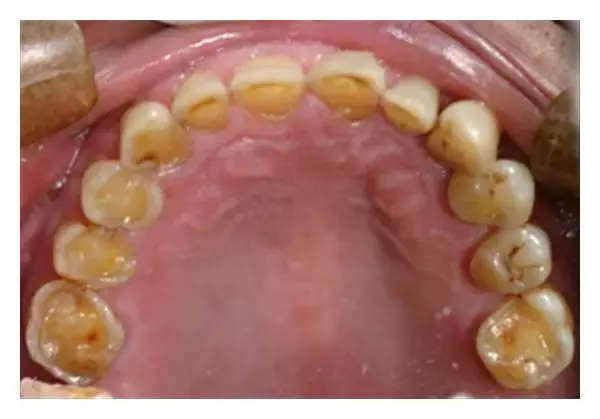- Home
- Medical news & Guidelines
- Anesthesiology
- Cardiology and CTVS
- Critical Care
- Dentistry
- Dermatology
- Diabetes and Endocrinology
- ENT
- Gastroenterology
- Medicine
- Nephrology
- Neurology
- Obstretics-Gynaecology
- Oncology
- Ophthalmology
- Orthopaedics
- Pediatrics-Neonatology
- Psychiatry
- Pulmonology
- Radiology
- Surgery
- Urology
- Laboratory Medicine
- Diet
- Nursing
- Paramedical
- Physiotherapy
- Health news
- Fact Check
- Bone Health Fact Check
- Brain Health Fact Check
- Cancer Related Fact Check
- Child Care Fact Check
- Dental and oral health fact check
- Diabetes and metabolic health fact check
- Diet and Nutrition Fact Check
- Eye and ENT Care Fact Check
- Fitness fact check
- Gut health fact check
- Heart health fact check
- Kidney health fact check
- Medical education fact check
- Men's health fact check
- Respiratory fact check
- Skin and hair care fact check
- Vaccine and Immunization fact check
- Women's health fact check
- AYUSH
- State News
- Andaman and Nicobar Islands
- Andhra Pradesh
- Arunachal Pradesh
- Assam
- Bihar
- Chandigarh
- Chattisgarh
- Dadra and Nagar Haveli
- Daman and Diu
- Delhi
- Goa
- Gujarat
- Haryana
- Himachal Pradesh
- Jammu & Kashmir
- Jharkhand
- Karnataka
- Kerala
- Ladakh
- Lakshadweep
- Madhya Pradesh
- Maharashtra
- Manipur
- Meghalaya
- Mizoram
- Nagaland
- Odisha
- Puducherry
- Punjab
- Rajasthan
- Sikkim
- Tamil Nadu
- Telangana
- Tripura
- Uttar Pradesh
- Uttrakhand
- West Bengal
- Medical Education
- Industry
Gastroesophageal reflux disease associated with erosive tooth wear

Gastroesophageal reflux disease (GERD) associated with erosive tooth wear (ETW) suggests a new study published in the Journal of Dentistry
The aim of this overview of reviews was to retrieve and evaluate the available evidence concerning the prevalence and association between gastroesophageal reflux disease (GERD) and erosive tooth wear (ETW).
A literature search was conducted in electronic databases and relative systematic reviews with or without meta-analyses were located. Updated supplemental search was also undertaken to identify additional primary studies. Medline (via Pubmed), Embase, Scopus, Cochrane Register of Systematic Reviews, PROSPERO and Epistemonikos.org database were searched. Additional search of the gray literature, abstracts of conferences and meetings as well as manual search of the reference lists of retrieved studies, was also performed.
The search retrieved 116 systematic reviews of which 10 were considered eligible and eight additional primary studies.
GERD constitutes a risk factor for ETW and there is a positive association between the two conditions. In the present overview, despite the heterogeneity between studies and the low level of evidence, it was clearly supported that individuals with GERD have an increased probability of also presenting with signs of ETW. In special groups of population, a high association was found between GERD and ETW. The geographic location may affect the association between GERD and ETW, while regarding the effect of flow rate, buffering capacity of saliva and oral microbial changes caused by GERD, the results were controversial.
Appropriate preventive dental care should be considered for individuals with GERD and a multidisciplinary medical and dental approach for the management of individuals with ETW is advised. The results of this study can be used by dentists dealing with typical and atypical GERD signs and symptoms in the oral environment, but also by the physicians and gastroenterologists who need to motivate their patients for oral examination.
Reference:
Konstantina Chatzidimitriou, William Papaioannou, Kyriaki Seremidi, Konstantinos Bougioukas, Anna-Bettina Haidich. Prevalence and association of gastroesophageal reflux disease and dental erosion: An overview of reviews, Journal of Dentistry, Volume 133,
2023, 104520, ISSN 0300-5712, https://doi.org/10.1016/j.jdent.2023.104520.
(https://www.sciencedirect.com/science/article/pii/S0300571223001069)
Dr. Shravani Dali has completed her BDS from Pravara institute of medical sciences, loni. Following which she extensively worked in the healthcare sector for 2+ years. She has been actively involved in writing blogs in field of health and wellness. Currently she is pursuing her Masters of public health-health administration from Tata institute of social sciences. She can be contacted at editorial@medicaldialogues.in.
Dr Kamal Kant Kohli-MBBS, DTCD- a chest specialist with more than 30 years of practice and a flair for writing clinical articles, Dr Kamal Kant Kohli joined Medical Dialogues as a Chief Editor of Medical News. Besides writing articles, as an editor, he proofreads and verifies all the medical content published on Medical Dialogues including those coming from journals, studies,medical conferences,guidelines etc. Email: drkohli@medicaldialogues.in. Contact no. 011-43720751


